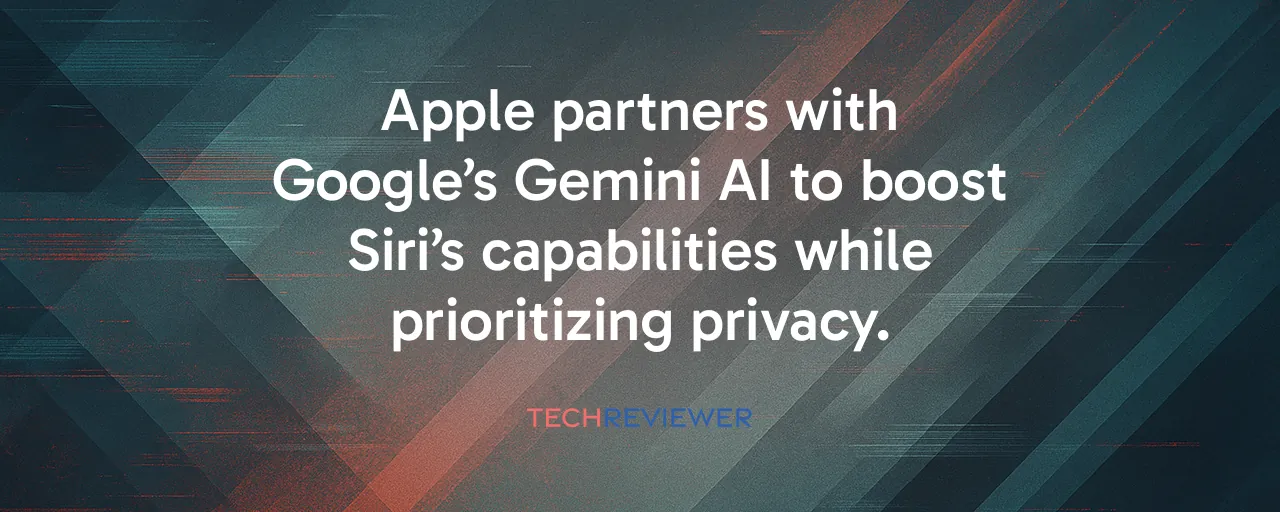Siri's Next Leap
Apple's Siri has been a loyal companion for iPhone users since 2011, but its shine has faded against flashier rivals like Google Assistant and Alexa. Now, Apple is eyeing a bold move to breathe new life into its voice assistant. Talks with Google to integrate Gemini, a powerful AI model, could transform Siri into a conversational powerhouse by spring 2026. This shift marks a departure from Apple's usual go-it-alone approach, sparking curiosity about what a Google-powered Siri might mean for users and developers alike.
The idea came out of nowhere for many, but it makes sense. Apple's own AI models, while sleek for on-device tasks, struggle with the complex, open-ended queries that modern users expect. Google's Gemini, with its knack for handling text, images, and even code, offers a tempting shortcut to close that gap. Apple is exploring partnerships, having also considered OpenAI and Anthropic, weighing ChatGPT and Claude as potential Siri brains, though a final decision on a partner is still weeks away.
Privacy Meets Power
Apple's commitment to privacy is non-negotiable, and any partnership with Google hinges on keeping user data locked tight. The plan is to run a custom Gemini model within Apple's Private Cloud Compute, a system designed to process AI queries without exposing personal information. This setup ensures end-to-end encryption, letting Siri tackle tough questions while shielding user prompts from prying eyes. It's a complex dance: blending Google's raw AI muscle with Apple's ironclad security standards.
Samsung's experience with Gemini Nano offers a glimpse of what's possible, and what's tricky. Galaxy AI, powered by a lightweight version of Gemini, rolled out slick features like text summarization but stumbled with clunky privacy notifications that frustrated users. Apple's engineers are likely taking notes, aiming to smooth out those kinks. Still, meshing Gemini with Apple's ecosystem demands hefty computing power, potentially requiring new data centers packed with specialized chips. That's a big investment, and Apple's promise to use 100% renewable energy will be put to the test.
Lessons From the Past
Apple's flirtation with Google isn't entirely new. Back in 2007, Google Maps powered navigation on the first iPhone, a partnership that worked until Apple launched its own Maps in 2012 after a messy breakup. That history looms large: Apple's instinct to control its tech stack runs deep, and outsourcing Siri's brain to Google feels like a gamble. The Maps saga taught Apple that relying on a rival can backfire, especially if priorities diverge. Today's talks suggest Apple is willing to take that risk again, at least for now, to catch up in the AI race.
Samsung's Galaxy AI rollout provides another cautionary tale. While Gemini Nano boosted functionality, inconsistent performance across languages and occasional lag left some users grumbling. Apple's challenge is to deliver a seamless Siri experience, whether handling quick on-device tasks or tapping Gemini's cloud for heavier lifting. Developers, too, face uncertainty: SiriKit and new AI APIs will need to juggle responses from both Apple's models and Google's, which could complicate app development.
What Users Stand to Gain
For iPhone users, a Gemini-powered Siri could be a significant advancement. Imagine asking Siri to write code for a Shortcut, analyze a photo, or handle a multi-step conversation without missing a beat. Gemini's ability to process text, images, and audio could make Siri feel less like a clunky assistant and more like a true partner. There's a catch: switching between on-device and cloud models might lead to uneven responses, a problem Samsung users already noticed with Galaxy AI.
Beyond convenience, the stakes are high for society. A smarter Siri could streamline tasks for millions, from automating workflows to answering complex questions on the fly. But risks like misinformation or overreliance on AI assistants linger. Regulators, especially in the EU, are watching closely. The Digital Markets Act could raise questions about Google's AI becoming a default on iOS, even if Apple's cloud keeps data secure. Balancing innovation with oversight will shape how this partnership unfolds.
The Road Ahead
Apple's decision, expected in the coming weeks, will set the tone for Siri's future. Sticking with in-house models keeps control but risks falling behind. Partnering with Google could fast-track Siri's glow-up, letting Apple focus on fine-tuning rather than building massive AI models from scratch. Google, meanwhile, stands to gain a foothold in Apple's ecosystem, potentially making Gemini a go-to standard for other device makers.
The collaboration could spark broader ripples. Apple and Google might team up on privacy-focused AI techniques, like federated learning, to refine models without compromising data. Developers could benefit from shared tools that work across iOS and Android, simplifying AI integration. For now, all eyes are on Apple's next move: whether Siri's upgrade will live up to the hype or stumble under its own ambition.
